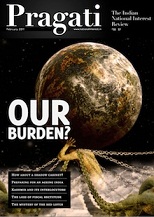Zimbabwe: Ready for India’s Business
Zimbabwe is an exciting country, still in bud but about to bloom, much like the beautiful blue jacaranda trees in Harare’s Liberty Park. Shipra Tripathi, one of India’s leading experts on Africa, was in the country last month in her new position as Vice President - International Business for Kirloskar Brothers.









